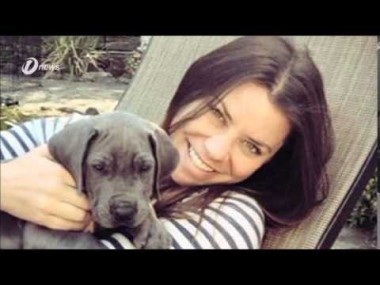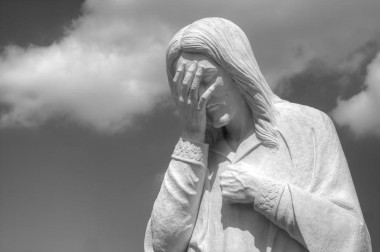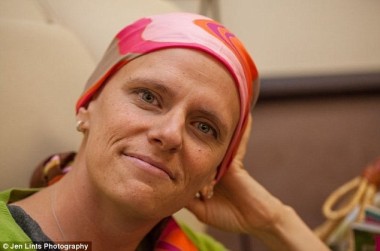29 year-old Brittany Maynard died on Saturday, November 1 by swallowing lethal drugs made available to her under an Oregon law that allows terminally ill people to choose when to die. Diagnosed with incurable Brain Cancer at the beginning of this year, Brittany was given six months to live. As her disease progressed she “suffered increasingly frequent and longer seizures, severe head and neck pain, and stroke-like symptoms. As symptoms grew more severe, she chose to abbreviate the dying process by taking the aid-in-dying medication she had received months ago” (http://www.startribune.com/lifestyle/health/281248621.html).
This is a story of human tragedy that deserves our compassion. Apart from any conversation about the moral and spiritual legitimacy of euthanasia, the terrible circumstances that Brittany Maynard and her loved ones found themselves in and the difficult choices that they faced should leave us “humble” and “modest” – what theologian Gabriel Fackre once described as the two “least appreciated” theological virtues that we have at our disposal as people of faith. “Humility” acknowledges that we don’t know everything, and “modesty” is how that “humility” behaves. It doesn’t say too much, too quickly or too loudly.
We are told that Jesus wept when He finally got to the tomb of His good friend Lazarus (John 11:35). There is a theology in the tears of Jesus Christ that deserves much more attention than they have traditionally gotten. Reduced to a riddle – “What is the shortest verse in the Bible?” – we have been distracted from the powerful point that the weeping of Jesus Christ makes about where God is and what God is doing about human suffering (see Hebrews 2:10-18; 4:14-16). Where Christ’s title “Emmanuel” – “God with Us” (Matthew 1:23) gets most powerfully incarnated for me is at the tomb of Lazarus when He broke down and wept before the exercise of His sovereign power in bringing Lazarus back to life. When Paul told the Thessalonians that Christians “grieve, but not as those who have no hope” (I Thessalonians 4:13), I think that he was holding together both Jesus’ tears and His display of power at the grave of His friend. It’s in-between these “furious opposites” that my faith lives.
After the catastrophes that befell Job, what Marilyn McCord Adams calls “the horrors,” we are told –
Now when Job’s three friends heard of all these troubles that had come upon him, each of them set out from his home—Eliphaz the Temanite, Bildad the Shuhite, and Zophar the Naamathite. They met together to go and console and comfort him. When they saw him from a distance, they did not recognize him, and they raised their voices and wept aloud; they tore their robes and threw dust in the air upon their heads. They sat with him on the ground seven days and seven nights, and no one spoke a word to him, for they saw that his suffering was very great. (2:11-13)
If this is where they had stopped, Job’s three friends would have been hailed as spiritual giants, pastoral role models for us all. But they didn’t. They opened their mouths and spoke. They said too much, too quickly and too loudly, with the result that they muddied the waters of understanding and obstructed the channels of compassion. I have observed a fair amount of this in the blogs and Facebook pronouncements of my ministerial peers in the weeks since Brittany Maynard took her leave of this world.
Many of my more progressive colleagues have used the death of Brittany Maynard to make their freedom of choice argument while many of my traditionally-minded colleagues have used the tragedy of her death to defend their prolife convictions. Predictably, they have lined up on opposite sides of the field of this familiar battle to launch their volleys, and in some ways, this is exactly what Brittany Maynard wanted. She made the conscious decision to go public with her private tragedy in order to advance the conversation about death with dignity in our society. She chose to make her private drama a media event. She wanted it to be the story that led the national news, and it did. This gave her suffering a greater purpose, and I respect the courage it took for her to do this even as I admire the clarity with which she did it. The tragic circumstances of her life provided her with a “bully pulpit” that she used quite effectively. She strode into the public square with a statement to make. But the nature of the public square is dialogical; other voices are going to answer back, and they have, as the blogs and Facebook postings I’ve read in recent weeks prove. My problem with so many of those other voices has been their smug tone and their shrill arguments. They have been so eager to score points in support of their predetermined positions that I fear that they’ve lost sight of the fact that this is about real people suffering in real ways from real threats to their existence.
Of all the responses that have been made to Brittany Maynard’s circumstances and choices, the most compelling one that I have personally come across was made by another terminally ill young woman, Kara Tippett. On both her web page – http://mundanefaithfulnrss.com – and in her recently published book The Hardest Place: Expecting Grace in the Midst of Life’s Hard (David C. Cook – October 2014) – Kara Tippett has staked out the exact opposite position that Brittany Maynard took while suffering the same exact set of circumstances, what Kara has described as “a road that feels simply impossible to walk.” Kara Tippett wrote an open letter to Brittany Maynard. You can read it at http://www.aholyexperience.com/2014/10/dear-brittany-why-we-dont-have-to-be-so-afraid-of-dying-suffering-that-we-choose-suicide/ Rather than the rhetorical broadsides, “in principle” arguments and political salvos that I have read elsewhere, this “one beggar telling another beggar where he found bread” approach has such power for me. How I wish that Brittany and Kara could have sat together, talked together and cried together. And how I wish we could have all been there to eavesdrop on that imagined moment. I suspect that in the solidarity of their suffering, there would have been much for us to learn about how to face our own dying, and the dying of those we love the most, with dignity and in faith. As Dr. Candi K. Cann, a Professor of Comparative Religion down at Baylor University, has written –
This is a complex issue that requires an equally complex response. I would agree that there is beauty to be found in both suffering and in death: a kind of beauty and embracing of life that one only finds when faced with the last breaths and days of someone we love who does not want to die. I believe that we learn lessons in sickness, in suffering, in dying, and in walking that journey with someone who is dying, but I also believe that it is easy for one person to judge another’s capacity for suffering based on their own experiences and prejudices. …Both Brittany and Kara write beautiful justifications for their positions on life (and death), and I admire both women — Brittany for taking ownership of her life and the way she wants it to end, and Kara for fighting to be present with her family and to find ultimate meaning in her suffering. The world is indeed a brighter place with both of these brave women shining light on these important issues and our need to bring death into the conversation of our daily lives. http://www.huffingtonpost.com/dr-candi-k-cann/two-perspectives-assisted_b_5960716.html





